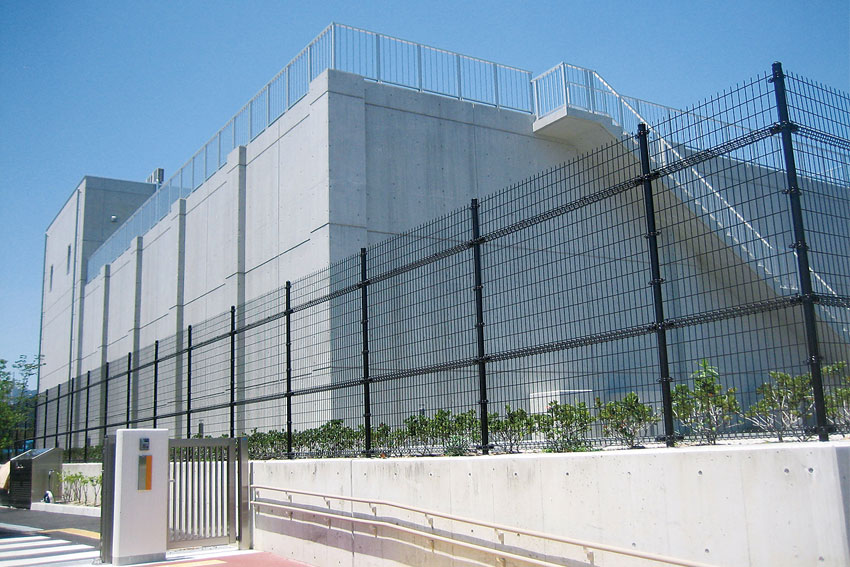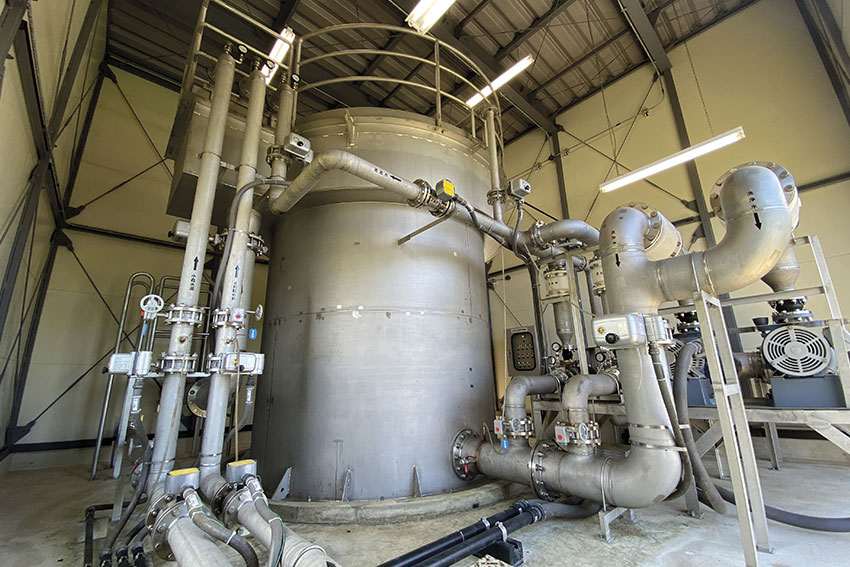Japan’s population decline brings new challenges and opportunities for companies in the construction sector and Hamada meets them head on with a strategy of acquisitions, investment and sensible development.

By Daniel de Bomford and Bernard Thompson
Japanese construction is iconic and it powered the nation’s industrial boom, pushing it to become one of the world’s largest economies. Renowned for its robust design, Japan’s infrastructure stands strong in one of the world’s most seismically active regions. Even now the skylines and industrial centers of Japan continue to evolve 50 years after the construction boom, pushing the boundaries of architecture and artful function. As the population declines the construction industry continues to persevere and expand, with scrap and build policies alongside the maintenance of existing infrastructure fueling the sector.
Companies within the construction sector, however, are anticipating a radical shift due to the ongoing demographic challenges. Taisuke Boda, President of Hamada Co., Ltd., says opportunities exist when it comes to maintenance for existing infrastructure. “When we look at waste treatment facilities, new ones are no longer being built, but we have been providing life-extending construction,” he says. Founded over 100 years ago, Hamada is a fixture in Japan’s construction and engineering sectors, focusing on heavy chemical industries and general construction. More recently it has become a paragon in the sector for environmental initiatives, especially around water purification and waste reduction.
What sets Hamada apart from its competitors is the very close relationship it cultivates with its customers. Mr. Boda explains, “We have a design team that is embedded with the customers, so we design the plant and machinery, we build the chemistry and other equipment, and then installation can be done.” It also has the capacity to fabricate piping and machinery on site and provide maintenance and delivery. “From design to shipment, we have various sales points, and we are very convenient for customers,” he says.

Project of NAGAOKA
Mr. Boda doesn’t anticipate large chemical plants, generators or water pumping facilities in the future, rather, as the population decreases smaller more appropriately sized infrastructure will need to be built. He has a local mindset and believes local maintenance is paramount. He explains, “For regional cities or towns, the reduction in the population is so fast, so severe, that there needs to be a new system rebuilt because it doesn’t make sense to maintain the current long water pipes or electric lines.”
Sustainable infrastructure is where Mr. Boda sees the largest opportunity for growth and Hamada is investing 4 billion JPY into its subsidiary AETEC for biogas power generation. While he believes the plant industry has peaked and demand for petrochemicals in Japan will remain stable, Hamada are working toward increasing their market share instead. Further gains are found by reducing headcount as sectors shrink or become more efficient. To mitigate the effects of Japan’s shrinking workforce, Hamada is gaining new employees through acquisitions of partner companies and can move human resources through its group where they are needed. Internationalization is also part of Hamada’s recruitment strategy, and the company already employs a number of workers from Vietnam.
In terms of international acquisitions, Vietnam is the likely choice according to Mr. Boda. “If we are to have any partnerships overseas, it will be in Vietnam because we have a lot of Vietnamese workers, so if we can collaborate with a chemical plant in Vietnam, it will be easy to communicate,” he says. Its acquisition of Nippon Shokubai has given Hamada access to foreign markets in Indonesia and Belgium. “Their chemical plant is unique and specialized in a way nothing like any other company, so we have a niche knowhow about this area, and our customer is requesting us to go to those countries,” he explains. This has opened the door to local acquisitions to assist in optimizing Hamada’s operations and oversee those plants.
The anticipated shift in Japan is around the corner, with 2040 expected to be the year where the population decline becomes fully apparent. Hamada will be instrumental in preparing and maintaining the next generation of infrastructure to service the evolving needs of Japan.
0 COMMENTS